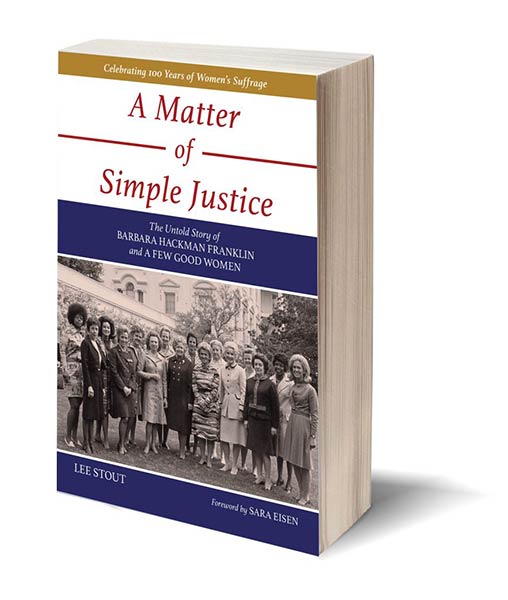Our society, our country, the globe will be better off the more women we have in leadership. Often it is the women who ask the most difficult questions graciously.
Secretary Franklin has been a long-time advocate for women’s equality and has worked to shatter the glass ceiling in the business world, the corporate boardroom, academia, government, and many more arenas.
Academia
In 1962, Franklin graduated with distinction from Penn State University. At the time, Harvard Business School was opening its doors to women; Dorothy Lipp, the Dean of Women at Penn State, nominated Franklin for a scholarship. Franklin entered Harvard Business School as one of 14 women in a class of 680 men, where she received her M.B.A. She was honored with an Alumni Achievement Award from the Harvard Business School and the Distinguished Alumni Award from The Pennsylvania State University.
The White House
In 1971, Franklin was recruited by President Richard Nixon to bring more qualified women into high-level, policy-making government positions. Nixon issued a directive to the heads of White House departments and independent agencies to create specific action plans to “clearly demonstrate our recognition of the equality of women by making greater use of their skills in high level positions”. Franklin was charged with monitoring the implementation progress on each departments’ action plans.
By April 1972, along with the other Presidential initiatives, Franklin’s efforts led to the tripling of the number of women placed into policy-making positions, from 36 women to 105 women, in this first year alone. By May 1973, this number further increased to 130 women, and Franklin had created a talent bank of 1,000 qualified women for future openings. More than half of these policy-making positions to which women were appointed during this time were previously held only by men.
At the mid-level, more than 1,000 women were advanced into many positions that women had never held before, such as sky marshals, tug boat captains, FBI agents, and forest rangers. The number of women appointed to boards and commissions increased from over 250 in the first year to 339 women by the end of May 1973. It was during this time that the first women became generals and admirals in the U.S. Armed Forces. This story was told in Lee Stout’s historical novel, A Matter of Simple Justice: The Untold Story of Barbara Hackman Franklin and A Few Good Women.
In 1992, Franklin was sworn in as the 29th Secretary of Commerce under President George H.W. Bush, making her the highest-ranking woman in the George H.W. Bush administration, the second woman to serve as Secretary of Commerce, and the 13th woman to serve in the US Cabinet.
Corporate Governance
By the end of the 1980s, Franklin was on the boards of seven large companies and was cited by the American Management Association as one of the 50 most influential corporate directors in America. Franklin has the distinction of having served as one of the first women of many of the 14 public company and four private company boards that she has served.
Professional
In the 1970s, Franklin co-founded the Executive Women in Government and of the Women’s Forum of Washington, D.C. She, along with several other women working in the government who were concerned about the advancement of women, began having meetings in the Roosevelt Room. After Franklin left the White House, she and her colleagues formed the Executive Women in Government in 1973 as a place to support one another and further discuss the advancement of women.
Among her many distinctions, Franklin has been inducted into the Connecticut Women’s Hall of Fame, was awarded BusinessWeek.com’s Top 25 Female Corporate Directors and the International Women’s Forum’s Women Who Made a Difference award. In 2017, TIME Magazine named her one of the “50 Women Who Made American Political History.”
